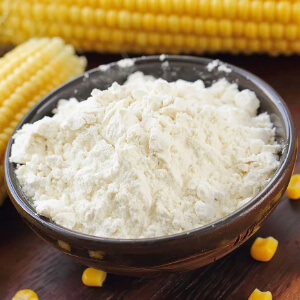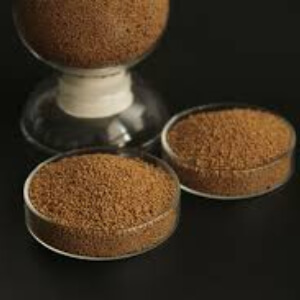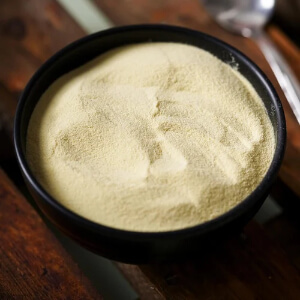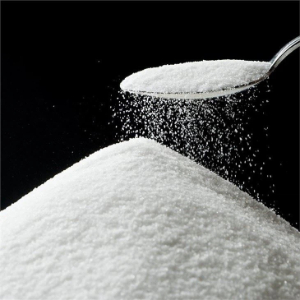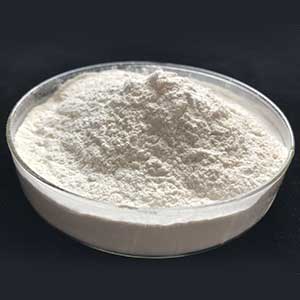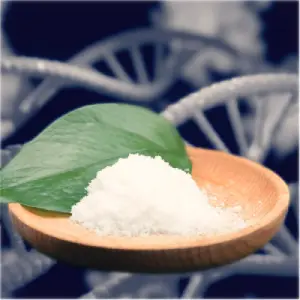
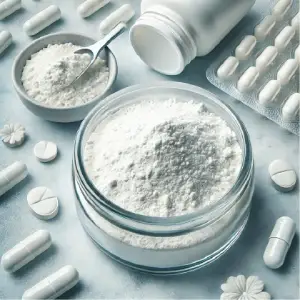

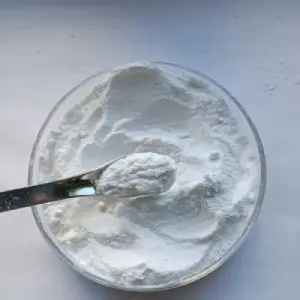
Hyaluronic Acid
Food Grade Hyaluronic Acid is a type of hyaluronic acid that has been specially processed and certified for use in food, beverages, and dietary supplements.
Chempora is a leading supplier of Hyaluronic Acid, we provide customers with high-quality Hyaluronic acid, if you have any arequirements, please feel free to contact [email protected], we will reply you as soon as possible.
CAS No.: 9004-61-9
Specification Available: Food Grade
Product Introduction of Hyaluronic Acid
Food Grade Hyaluronic Acid is a type of hyaluronic acid that is specially processed and certified for use in food, beverages, and nutritional supplements. It is usually a white or off-white crystalline powder with good water solubility. When dissolved in water, it forms a clear, viscous liquid or gel with moisturizing and lubricating properties.
Unlike cosmetic grade hyaluronic acid, food grade hyaluronic acid usually goes through a more stringent production and quality control process to ensure that it is non-toxic, harmless, and suitable for use in the human body. It is often used as a moisturizer, thickener, or nutritional supplement in food and beverage products.
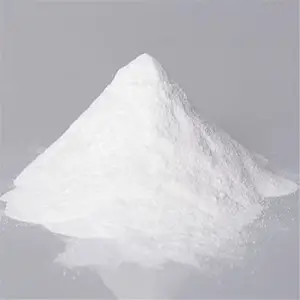
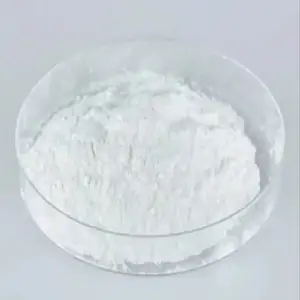

Product Advantages of Hyaluronic Acid
As a natural polysaccharide, food-grade hyaluronic acid (HA) has a series of significant advantages, especially in the fields of food, health care products and cosmetics. The following are the main advantages of food-grade hyaluronic acid:
1. Excellent moisturizing ability
Hyaluronic acid is an extremely strong moisturizer that can absorb thousands of times its own weight in water. Therefore, in food and health care products, hyaluronic acid helps to maintain the body’s water balance and improve dry skin problems. It can increase hydration in the body and keep the skin moisturized from the inside out.
2. Joint health
Hyaluronic acid exists naturally in human joint fluid and is one of the key components of joint lubrication. Food-grade hyaluronic acid is often used in joint health supplements to help promote the formation of joint fluid, reduce joint friction, and relieve joint pain. It is especially effective for arthritis, sports injuries or the elderly.
3. Anti-aging effect
Hyaluronic acid helps slow down the aging process of the skin. As we age, the content of hyaluronic acid in the body gradually decreases, and the skin shows aging phenomena such as dryness, sagging and wrinkles. Food-grade hyaluronic acid helps restore skin hydration, improve skin elasticity and radiance, and delay aging by replenishing hyaluronic acid in the body.
4. Enhance immunity
Hyaluronic acid plays a certain role in immune response, can promote the migration of white blood cells, and enhance the defense ability of the immune system. In some foods and health products, hyaluronic acid as an auxiliary ingredient can help improve immune function and prevent infection.
5. Improve skin health
Hyaluronic acid not only moisturizes, but also promotes skin repair and regeneration. It can improve the barrier function of the skin, reduce water loss, and help repair damaged skin tissue. Hyaluronic acid is often used to supplement moisturizing ingredients in the diet to help maintain skin health.
6. Natural and safe
Hyaluronic acid exists naturally in the human body and is widely found in animals and plants, so it has good biocompatibility. Food-grade hyaluronic acid has undergone strict quality control and safety testing, meets food additive standards, and usually does not cause allergies or side effects.
7. Promote wound healing
Hyaluronic acid plays an important role in tissue repair, especially in the wound healing process. It can promote cell regeneration, accelerate wound healing and anti-inflammatory effects. Therefore, hyaluronic acid is also widely used in some food-grade repair health products.
8. Enhance skin absorption capacity
The application of hyaluronic acid in food and beverages can not only improve the hydration of the skin by directly replenishing water, but also enhance the skin’s absorption capacity of other nutrients and improve the overall maintenance effect.
9. Multifunctionality
Hyaluronic acid is not only suitable for joints, skin care, immune regulation, etc., but also has potential health benefits such as anti-inflammatory and antioxidant. It has a wide range of applications in various functional foods and beverages, such as weight loss and metabolism regulation.
10. Hypoallergenicity
As a natural substance, hyaluronic acid usually has low allergenicity and is suitable for use by all kinds of people. Its low irritation and high safety make it more commonly used in food and health products.


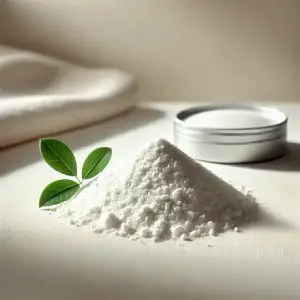
The advantages of food grade hyaluronic acid are mainly reflected in its powerful moisturizing, anti-aging, joint health care, skin repair, etc., and it also has high safety and biocompatibility. It is a versatile nutritional ingredient suitable for dietary supplements, beverages and skin care products, providing consumers with comprehensive health support.
Product Application of Hyaluronic Acid
Food Grade Hyaluronic Acid is widely used in various food and beverage products due to its multiple benefits such as moisturizing, anti-aging, and joint health. The following are some types of food that food grade hyaluronic acid can be used in:
1. Functional Beverages
Hydration Beverages: Food-grade hyaluronic acid can effectively retain water in the body. It is commonly found in functional beverages and helps improve overall hydration. It is especially suitable for people who are exposed to dry environments for a long time (such as air-conditioned rooms or after exercise).
Anti-aging Beverages: Hyaluronic acid is widely used in anti-aging beverages because it can improve skin hydration and reduce fine lines and wrinkles. It is usually used in combination with other antioxidant ingredients (such as vitamin C, collagen, etc.).
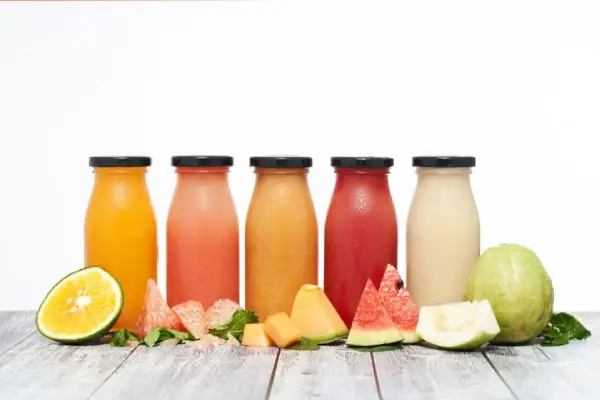

2. Dietary Supplements
Joint health supplements: Hyaluronic acid is often added to joint health supplements to help lubricate joints, reduce inflammation, and relieve joint pain. It is suitable for arthritis or the elderly.
Skin health supplements: Hyaluronic acid helps improve skin hydration, improve skin elasticity and smoothness, so it is often found in health supplements that replenish skin moisture and anti-aging.
Beauty and anti-aging: In “from the inside out” beauty supplements, hyaluronic acid is often used with nutrients such as collagen and vitamins to help improve the health and appearance of the skin.
3. Functional Foods
Healthy Snacks: Hyaluronic acid is used as a moisturizer and lubricant in some healthy snacks (such as energy bars, nuts, nutritional cookies, etc.), helping to maintain the freshness and taste of the product.
Nutritional Candies and Soft Candies: Hyaluronic acid is also added to functional soft candies and nutritional candies, especially those focused on skin health, anti-aging or joint health.
Capsule or Tablet Foods: Hyaluronic acid often exists in capsule or tablet form as part of a health supplement for consumers to supplement to improve the health of skin, joints, etc.
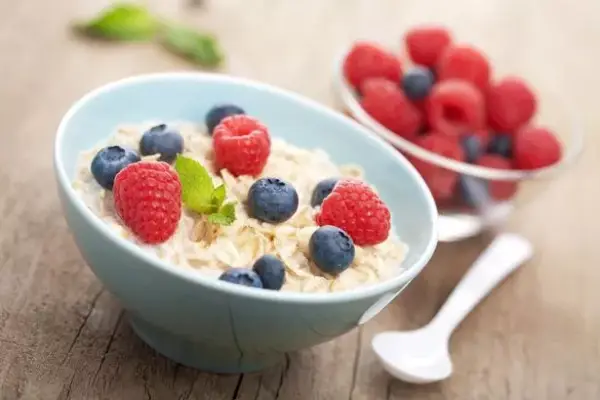
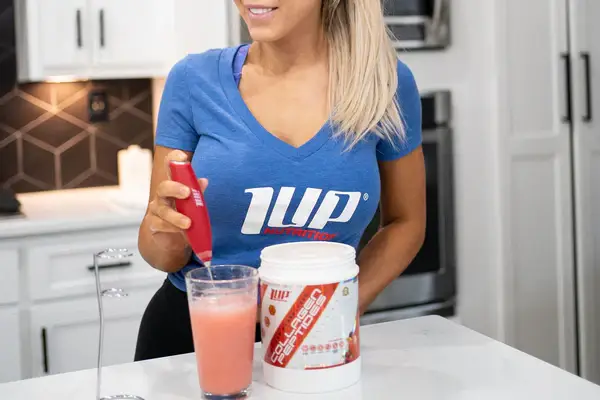
4. Beauty Beverages
These beverages usually combine hyaluronic acid with other nutrients (such as collagen, vitamins, minerals, etc.) to provide deep skin moisturization and improve skin radiance and elasticity.
Hyaluronic acid is also often used in whitening drinks, anti-aging drinks, etc.
5. Health Product
Sports Drinks:After exercise, hyaluronic acid can help reduce joint inflammation and pain and promote joint recovery and flexibility. It can be used as part of sports drinks to help athletes or active people maintain joint health.
Gut Health Products:Hyaluronic acid is considered to be beneficial to intestinal health, especially in promoting intestinal mucosal repair and keeping the intestines moist. It is sometimes added to some probiotics or gut health supplements.
Low-calorie and weight loss foods:Due to its ability to promote hydration in the body, hyaluronic acid can be used as an ingredient in low-calorie foods to increase satiety or improve taste without adding too many calories.

The unique advantages of food grade Hyaluronic acid are mainly reflected in its excellent hydration, joint and skin health support, natural safety, anti-inflammatory and anti-aging functions. These advantages make HA not only a moisturizing ingredient, but also play an important role in multiple health fields, meeting consumers’ multiple needs for health, moisturizing, anti-aging, etc. It is suitable for various functional foods, beverages and health products, and can effectively enhance the market appeal and health value of products.
Product Parameter of Hyaluronic Acid
| Item | Specification |
|---|---|
| Product Name | Food Grade Hyaluronic Acid |
| Appearance | White or off-white amorphous powder / Colorless transparent liquid |
| Glucuronic acid | ≥ 42 |
| Sodium Hyaluronate | ≥ 91 |
| Molecular weight | / |
| Protein | ≤ 0.1% |
| pH Value | 6.0 - 7.5 |
| Dynamite viscosity | / |
| Transparency (0.1% solution) | ≥ 99% |
| Loss on drying | ≤ 10% |
| Strong heat residue | ≤ 20% |
| Bulk density | / |
| Heavy metals | ≤ 20 ppm |
| Bacterial counts | ≤ 1000 cfu/g |
| Mold & Yeast | ≤ 100 cfu/g |
| Applications | Food, beverages, dietary supplements, functional drinks, joint health products, skin care supplements, etc. |
| Packaging | 1 kg/bag, 5 kg/barrel (customizable based on customer requirements) |
| Storage Conditions | Store in a sealed container in a cool, dry place, away from direct sunlight |
| Shelf Life | 3 years |
| Certifications | Food grade, GMP certified, ISO certified, etc. |
| Manufacturing Process | Produced by fermentation, meeting international food safety standards |
Production Process of Hyaluronic Acid
The production process of food-grade hyaluronic acid typically involves the following key steps:
1.Fermentation
The most common method for producing hyaluronic acid is through fermentation. This process uses specific strains of bacteria, such as Streptococcus zooepidemicus or Bacillus subtilis, which naturally produce hyaluronic acid. The bacteria are cultured in a controlled fermentation environment with nutrients like glucose, amino acids, and vitamins.
2. Extraction
After fermentation, the hyaluronic acid is extracted from the culture medium. This involves separating the bacterial cells from the liquid, often through filtration or centrifugation. The resulting liquid contains the hyaluronic acid along with other by-products.
3. Purification
To obtain food-grade hyaluronic acid, the extracted product undergoes a purification process. This may involve several steps such as dialysis, ultrafiltration, or solvent extraction to remove impurities, bacterial endotoxins, and other unwanted compounds. The goal is to obtain a high-purity product suitable for human consumption.
4. Concentration
The purified hyaluronic acid solution is then concentrated by removing excess water, often through evaporation or freeze-drying. This results in a thicker, more concentrated form of hyaluronic acid.
5. Drying
In many cases, the concentrated hyaluronic acid is spray-dried or freeze-dried into a powder form, making it easier to handle and store.
6. Quality Control
Before the hyaluronic acid is approved for use in food products, it undergoes rigorous quality control testing. This includes checking for purity, microbiological safety, and compliance with regulatory standards set by organizations like the FDA or EFSA.
7. Packaging
Finally, the food-grade hyaluronic acid is packaged in sterile, food-safe containers to ensure it remains uncontaminated and ready for use in dietary supplements, functional foods, and beverages.
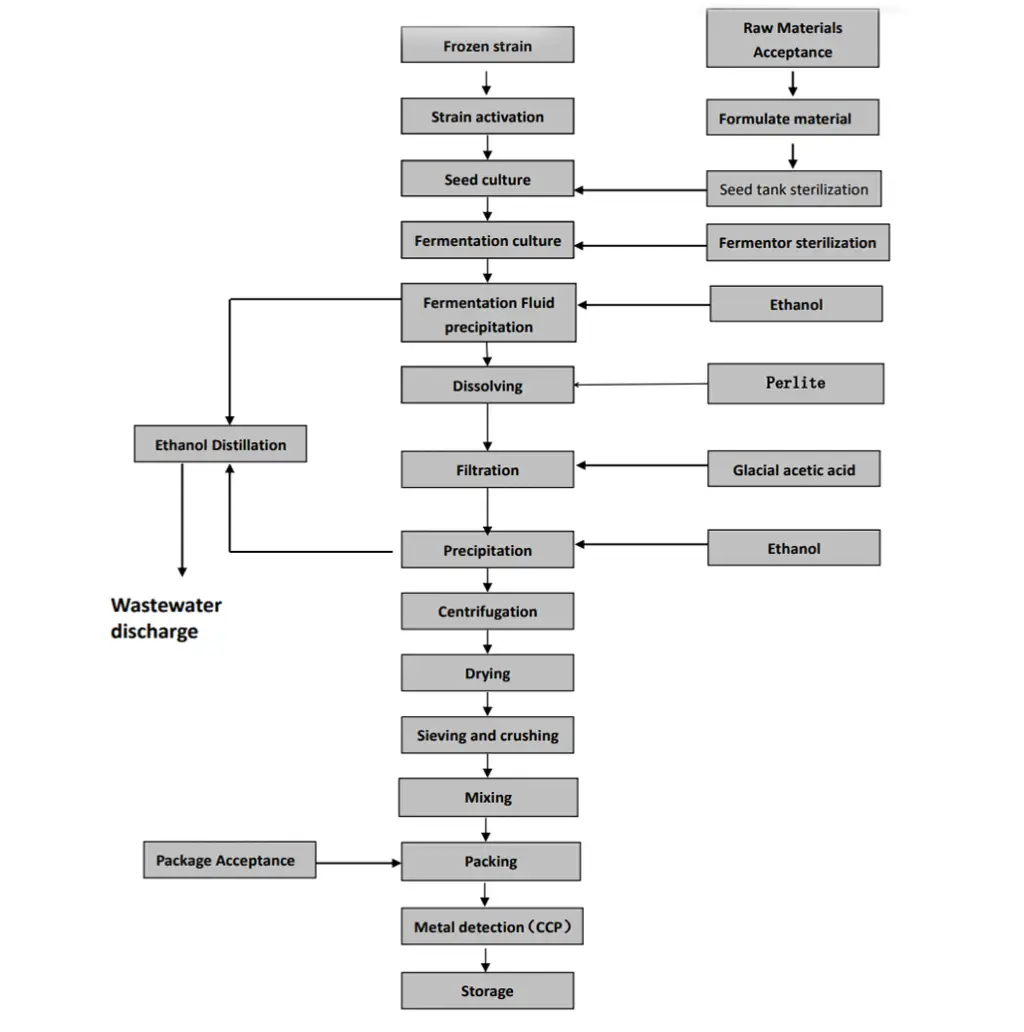
This process ensures that the hyaluronic acid produced is safe, effective, and meets the necessary standards for human consumption.
Notes for selecting of Hyaluronic Acid
When selecting food-grade hyaluronic acid (HA), focus on these key factors:
1. Source: Prefer microbial fermentation-based HA for vegan options, or verify the origin if animal-derived.
2. Purity: Ensure high purity (usually >99%) and check for contaminants or fillers.
3. Molecular Weight: Choose based on your product’s purpose (high molecular weight for skin, low molecular weight for joint health).
4. Solubility: Ensure good water solubility and consider viscosity in liquid-based products.
5. Regulatory Compliance: Verify GRAS status (FDA), EFSA approval, or local food safety certifications.
6. Stability: Ensure a reasonable shelf life and proper storage conditions.
7. Supplier: Choose reputable suppliers with traceable sourcing and third-party testing.
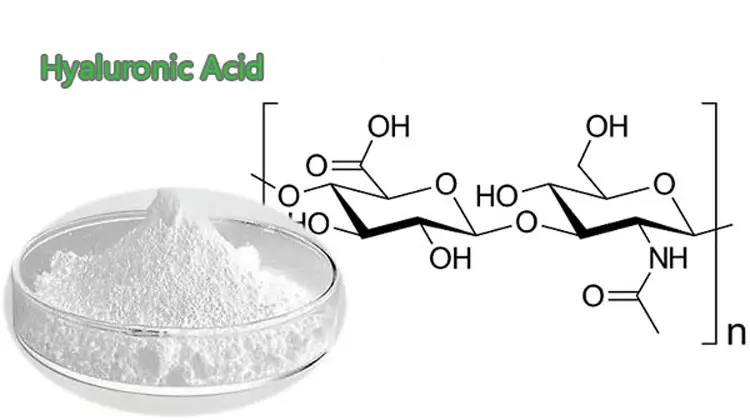
These factors will help ensure you choose safe, effective, and high-quality HA for food or supplement use.
Reasons for selecting Chempora Hyaluronic Acid
Here are key reasons to select Chempora Food-Grade Hyaluronic Acid:
1. High Purity: Our HA offers >99% purity, ensuring high-quality standards with minimal contaminants.
2. Microbial Fermentation: Sourced through a sustainable, vegan-friendly microbial fermentation process.
3. Regulatory Compliance: Fully compliant with FDA GRAS status and other international food safety certifications.
4. Customizable Molecular Weight: Available in various molecular weights to suit different applications, from joint health to skin hydration.
5. Reliable Supplier: As a trusted global partner, we provide transparency, traceability, and third-party testing for consistent quality.
6. Stable and Effective: Our HA is tested for stability, ensuring long shelf life and reliable performance in food or supplement products.
Contact Us
CHEMPORA CO., LIMITED
Choose Chempora for food-grade hyaluronic acid that meets your quality, safety, and functional needs.


